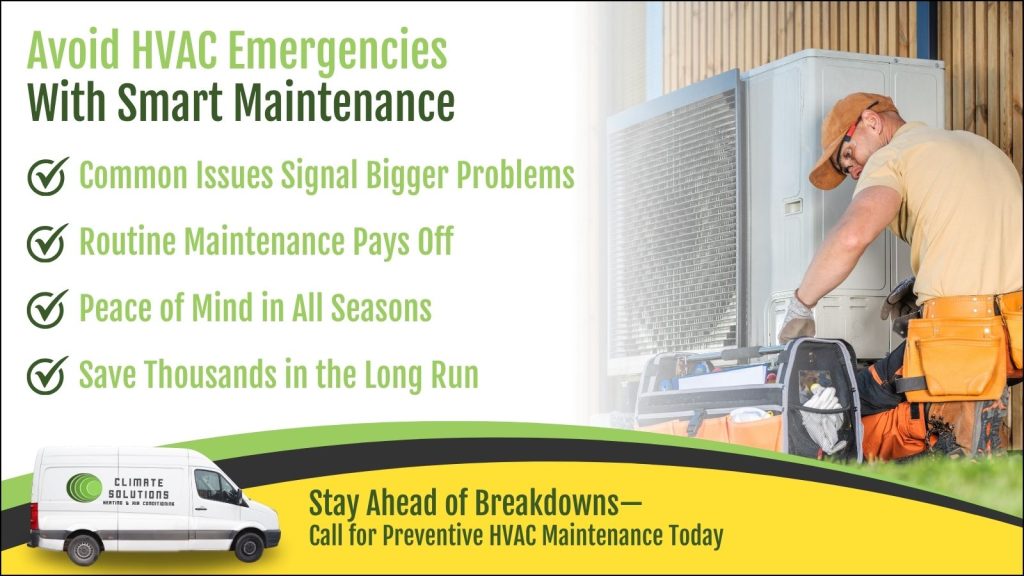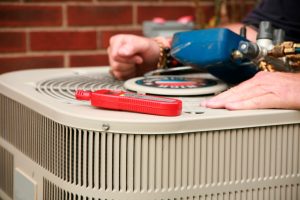When it comes to your HVAC system, waiting until something breaks is never the best approach. Your heating and cooling system works hard year-round to keep your home comfortable, and like any hardworking machine, it needs regular attention to stay in top shape.
Ignoring early warning signs or skipping seasonal maintenance can lead to more costly repairs—or even full system replacement—when you least expect it. Staying proactive with your HVAC care not only helps avoid these expensive surprises, but it also ensures your comfort when temperatures hit extremes.

Here’s how to spot the signs of HVAC trouble early—and why taking action now can save you stress, time, and money down the line.
Common Warning Signs Your HVAC System Needs Attention
Your HVAC system often gives off subtle clues before a major issue develops. The key is knowing what to look for so you can call a professional before the problem worsens.
1. Inconsistent Temperatures
If some rooms in your home feel much colder or warmer than others, your system may be struggling to distribute air evenly. This could be due to clogged filters, ductwork issues, or a failing thermostat. It may also indicate that your system is improperly sized for your home or that it is beginning to wear out.
2. Strange Noises
A healthy HVAC system should run relatively quietly. If you hear banging, rattling, screeching, or buzzing, something is likely wrong. These sounds may point to loose parts, a failing motor, or debris in the system. The longer you wait to investigate, the more damage these issues can cause.
3. Weak Airflow
Weak or reduced airflow from vents can mean your blower motor is failing, your air filter is clogged, or there’s a blockage in the ducts. Poor airflow compromises comfort and forces your system to work harder, increasing wear and tear.
4. Unpleasant Odors
Musty, burning, or chemical-like smells are a clear red flag. They could signal mold growth inside your system, electrical issues, or even a refrigerant leak—all of which require immediate professional evaluation.
5. Short Cycling
If your HVAC system turns on and off frequently in short bursts, it’s known as short cycling. This puts a strain on components, reduces energy efficiency, and often stems from thermostat problems, dirty coils, or an overworked compressor.
Why Preventive Maintenance Matters
Routine HVAC maintenance is your first line of defense against unexpected breakdowns. A qualified technician can spot and correct small issues before they escalate into costly repairs. During a maintenance visit, they’ll clean components, check for leaks or worn parts, calibrate the thermostat, and ensure your system is operating efficiently.
In addition to avoiding repairs, regular maintenance extends the life of your HVAC system, helps maintain lower energy bills, and keeps your home’s air cleaner and healthier.
The Cost of Waiting
Postponing a service call might seem like a way to save money, but the cost of ignoring HVAC issues adds up quickly. A minor repair today might only cost a few hundred dollars—wait too long, and you could be facing a multi-thousand-dollar system replacement. Worse, a breakdown during the peak of summer or the dead of winter can leave you without cooling or heating when you need it most.
Schedule an appointment for preventative maintenance with the team at Climate Solutions, Inc. The trusted source for all your heating and cooling needs.

